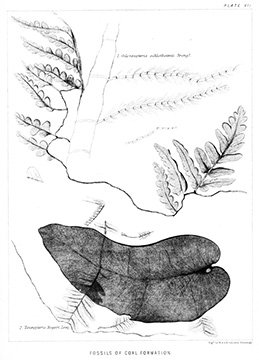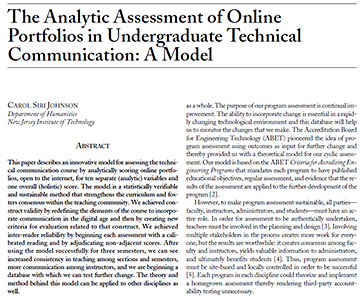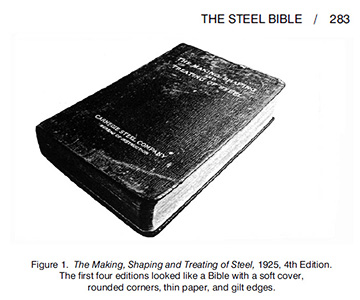Dr. Carol Siri Johnson
Department of Humanities, New Jersey Institute of Technology
Research - Overview
While I worked in the software industry, I fulfilled my curricular curiosity by studying the land around me in Northern New Jersey. Hiking, I saw mines and ruined furnaces and became interested in the iron industry. When I returned to academia, I combined this interest with my experience in technical communication, resulting in my first publications about technical communication in the iron industry. My interests in educational assessment came from teaching, from Norbert Elliot, and from my family history. But here's the question - what is scholarship? At the CUNY Graduate Center, I learned part of it was to bring lost or forgotten knowledge to light. That's what I'm doing now. If you pursue known lines of research, you will nudge knowledge forward. However, if you keep your options open, you may see new things.



Due to my research on 18th and 19th century technical documents, I discovered that shorthand was once widely used. At first, it was used as a secret code to hide messages. Later it was used to record events, via speech, as they happened. When office and industrial management grew, it became a tool to write fast, secretly (if necessary) and also to take endless dictation . . . I also discovered there was very little (or no) research on this topic, and I began to study it. I had practical reasons for doing so - one of my historical subjects, Robert Erskine, left a cache of documents written in shorthand. I deciphered some of the shorthand and posted it on this website. From that, Andrew Otis contacted me to decipher the shorthand of Justice John Hyde, and thus began the Hyde Project.
I began two very large research projects at the same time. Neither, of course, are finished. For more information, see the links below.
Deciphering Shorthand
I have deciphered two forms of shorthand - that of John Erskine, in the Robert Erskine archive and that of John Hyde. Click here to learn about the process of deciphering early shorthand samples. (unfinished)
The History of Shorthand
Reading the history of shorthand is easy - it was very popular up until the 20th century, until two main forms emerged and it became an integral part of the business world. Although it's easy to read the history, it's another thing to write it and so that will have to wait.Click here to read more (unfinished).